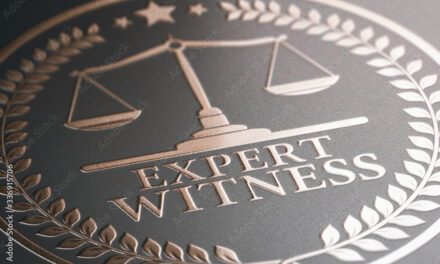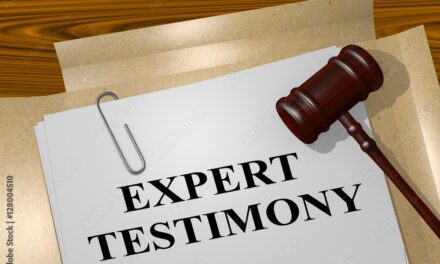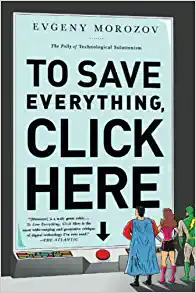More On Depositions
I have discussed in at least one previous blog, how leading questions can be effective, not only in trials but also in depositions. I have suggested that litigating lawyers take courses in how to do this more and more adeptly, and then again and again, after planning. The result to be seen soon will not only be good for the client, but it will also display excellence. The best lawyer I have ever witnessed doing this is Walt Haskins from Tulsa, Oklahoma. Believe me! I have seen many of them. If possible, get his depositions if they are online, and get an Oklahoma law school (or any law school) to have him do adjunct demonstrations.
In this brief post, I suggest a couple of ways for witnesses to deal with the Walt’s of the world.
First, witnesses must be adequately prepared. A couple of hours is not enough. Read transcripts and other documents, e.g., claims files. Discuss deposition technique. Show videos of other depositions.
Second, teach the witness (W) to answer slowly, not to rush in. Once this starts, it’s hard to stop. Teach the witness to block his/her temptation to speed up. Notice that proceeding quickly has two dimensions: starting to answer quickly and talking fast once testimony begins. Practice on this is required. Give simple answers, and if simple answers are not possible, given the simplest answer possible, even if it is not per se really simple at all.
Third, and this may be the most important, teach W to avoid giving “Yes” or “No” answers, if at all possible. This suggestion applies especially to “Yes” or “No” questions. Have faith if your hesitancy makes some degree of sense. The judge is not likely to order the witness to give a “Black” or “White” answer when some degree of hesitation and elaboration are reasonable.
The depositioner may try to fight with the witness; may try to order him to give the one-word answer he wants; the depositioner may become irate; he may become–at least somewhat–unhinged. The lawyer may say that the deposition will just last longer. The witness protection lawyer should object to all conduct that deviates from perfect civility and objects to all repetitious questions. W should be trained not to take the performances of the depositioner seriously. He may be performing. He may be acutely disappointed. His will to control may be undermined. Maybe he just likes to make threats because it gives his miserable life meaning. Maybe he is dealing with a concealed sense of inadequacy. Or depression. His antecedent plan maybe being sent down the toilet; nobody likes that. Fortunately, sophisticated people don’t usually respond like that. No, do those who are civil. Then again he may simply be an asshole.
Now we get to the major point. What are some of the ways to weaken an answer to a “Yes” or “No” question?
A:”Yes, but _______.” Be prepared for the depositioner asking, Q: “Why the ‘but’?” Be ready to answer such Why?” questions a couple of times, but also be prepared to say, A: “Well, it seems so to me. If what I have said is not clear to you, I’m not sure what more I can say just now.” or A: “I’ll see if my _____ become more statable as time goes along.” Always try to leave the future open. Of course, it goes without saying, that W should never lie. Usually, there is no need to deal with such a situation. For the most part, unequivocal certainty does not exist; no one knows about all or any of the features of complex matters, for sure; every witness can say exactly this; and it is usually not wise for counsel to say that a matter is so simple, that certainty is required.
“I don’t think I understand the question.” Q: What do you not understand? A: “I’m not sure. You asked me to say what I don’t understand, and I have now done that. . . .” And this dialogue will continue. What about this? Q: What don’t you understand? A: None of it really. It’s rather __________ [complicated, vague, &c]. Would you arrange in simpler terms, please?”
A: I am inclined to say “Yes,” but I know that such does not exhaust the matter.” Q. What is missing? A: “One cannot tell right off the bat. No answer is ever final, just as no question is perfect.” or A: “I haven’t read all the other depositions yet. And I’m not willing to say [what I think happened or what my ‘end-game’ opinion is] until I see what others are saying.” Q: Will you change your mind if _____? A: “I don’t know. I’ll have to see those depositions. Q: What would it take for you to change your mind about X? A: “I’m not sure. One can’t be sure about something like that without a clear idea of what is believed.”
And the list goes on and on.
If the depositioner tries to get “tough, the lawyer defending the witness should object,” and the witness can say things like this:
“I’m trying hard here, please don’t be ___________ to me.” (i) rude, (ii) cross, (iii) uncivil, (iv) mean, (v) ugly, (vi) insulting, (vii) contemptuous , and so forth.
“I’m to follow you; maybe I’m just not as bright as you.” [Be careful about this one.]
“I’m trying to keep up, but you know a lot more about this case than I do.” [Not for expert witnesses.]
“I’m trying to move along with you, but your tone, facial gestures, and _______ have all upset [unnerved, gotten to, distressed, etc.] me” [Not for the gentile lawyer.]
I am trying to _________, but I am aware of how you have treated other witnesses [in other cases and in this case] [W needs to be ready for more questions– “exploratory questions.”] “I have the impression that you treat witnesses ___________ [badly, rudely, like shit, &c.]”
And the list goes on and on.
W should not let the depositioner push him/her around. This is part of what video is for. It’s very effective! Objections to specific conduct–verbal or otherwise–are not as immediately effective, but they can sometimes reduce the problem. If the conduct is repeated more than twice in a 3-hour deposition, or if it keeps rising and rising in a longer one, objections can be effective to put a stop to the conduct. Walking out of a deposition is seldom a good idea. W should consider weeping on the video after being particularly nasty by the depositioner. Motions for sanctions can also be effective. Make sure the judge gets the relevant parts of the video and provide a “Table of Contents.”
W should never (or, at least rarely) retreat if a depositioner asserts that it is his deposition and he has the right to ask questions as he sees fit and demand precise answers to his questions. These assertions are false. (1) Arguably at least, it is not the depositioner’s deposition. W is the one who took the oath, therefore it is W’s. (2) The depositioner does not have the right to demand the answers he wants. W has a right, to tell the truth and nothing but the truth. If “Yes, but _______,” is the best answer at the time of the deposition, then W has the right to give that answer. W also has the right to give a reasonable answer. Perhaps it cannot be determined what the best answer might be.
W should never give in or feel threatened when L uses a question formulated as follows:
Q: So. You are saying that _________ as you sit here today.
Here are some answers: No.
Yes.
Maybe.
Sort of.
Pretty much.
Remember, what I am saying here today may change as more data comes in, including what others say.
Sort of, to be sure, but _____________.
Three points need to be repeated:
No lying, but mistakes and false assertions, are not lying.
There is no such thing as too much preparation.
Some preparation can be conducted over the phone, over Skype, or with similar computer connections.
More training. You think is it is not required, but you could, quite possibly, be wrong.
No domination.
And most important of all:
W is to go slow in testifying.







Recent Comments